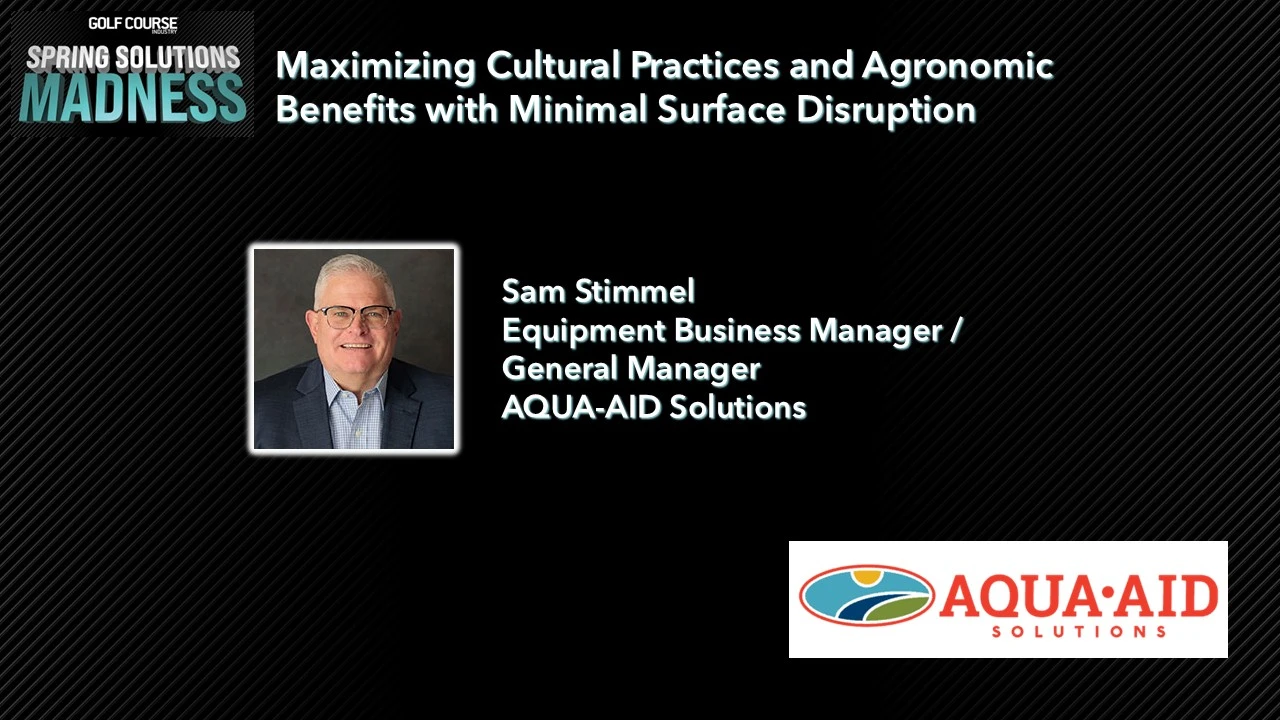I’m surprised and disappointed when I read that the majority of golf course superintendents feel insecure about maintaining their jobs. A recent 2004 Golf Course News survey indicated only 41 percent of superintendents feel completely secure with their jobs, 51 percent feel less than secure, and 7 percent express uncertainty about the subject, which is tantamount to acknowledging job insecurity.
Reasons to support the premise of job insecurity are: The national economy is putting additional budget pressure on golf course operations; the dot-com era brought more inexperienced, quicker-to-act personalities into positions of authority within the superintendent’s chain of command; and club and course officials generally don’t understand the increasing complexity of the superintendent’s work world.
My definition of job security is when superintendents are guaranteed the right to work, or otherwise, upon notice, have the right to be paid for the coming 12 months with full benefits.
My disappointment isn’t with the industry or its people for failing to appreciate the work of golf course superintendents. Rather, it’s directed at the golf course superintendents for not being sensitive to the many job-security opportunities available to them in many different ways. Examples follow.
Season-ending evaluation meetings. More superintendents should request or require season-ending evaluation meetings in which discussion would focus on what went well that season, what didn’t and what needs to be done better next season. While this procedure won’t guarantee job security, it will defuse issues that regularly lead to job dismissal.
Job descriptions. More superintendents should require that annually reviewed job descriptions be incorporated in their employment agreements. If necessary, superintendents should draft a job description and submit it to the employer for mutual approval.
The benefit of a job description is it holds both parties accountable to each other in writing, while at the same time ensuring the scope of the superinten-dent’s job won’t change unknowingly with green committee turnover. Job security is put at risk any time superintendents and their employers have different understandings of the scope of the job.
Big brother programs. A little recognized fact of life is that when assistants assume their first superintendent positions, all supervision of their work ends. Employers will judge their final work product, but there’s no qualified supervision of the quality and flow of their everyday work, unless superintendents work for contract firms.
To correct this oversight, GCSA chapters should match rookie superintendents with veteran superintendents who will counsel the newcomers through their learning-curve period. This should include regular mandatory visits (with and without notice) to the rookie superintendent’s course to provide quality supervision all first-time managers require in any profession.
Written agreements. Several key points must be made regarding employment agreements. Accordingly, superintendents should:
• Insist on written agreements or contracts because they guarantee the right to work (or to be paid) for the life of the agreement.
• Avoid fixed, multi-year agreements that reduce to zero job security after the final contractual year; where presumably there will have been administration turnover from the time when the agreement was signed; and when less costly superintendents will be available. At no other time will a superintendent’s job be at greater risk.
• Negotiate for multi-year rollover agreements that will extend one year whenever there are 12 months remaining in the life of the agreement.
If the superintendent’s seniority doesn’t allow for 12-month compensation upon notice, the superintendent can settle for fewer months initially, provided the employer will add two or three months (which is negotiable) of job security for each succeeding year of satisfactory work, up to a maximum of 12 months.
Playing golf. In due course and within the following sequence, golf course superintendents should: (1) play golf regularly, visibly and comfortably, (2) earn a USGA official handicap, (3) take and pass the PGA/USGA rules test, (4) serve on their club/course rules committee, and (5) volunteer to serve on the local state or regional golf association’s junior tournament/rules committee.
Some superintendents might not want to commit to the complete scenario. But by acquiring an official handicap and passing the PGA/USGA rules test, superintendents will place themselves in an exclusive peer group (99th percentile) in the national community of golfers.
Historically, golf employers have always given the benefit of the doubt to and have hesitated dismissing individuals they look at as peers or part of their immediate family in golf as opposed to superintendents who turn their backs on playing the game. Statistics show that more than 70 percent of recently dismissed superintendents didn’t play golf regularly.
Budget efficiency. Because economics drive every business, superintendents that consistently manage budgets tightly and cost efficiently will always be respected and in demand. The sooner superintendents recognize the ego-building practice of growing budgets that’s so prevalent early in careers becomes a liability later in careers, the more secure their jobs will be.
Cost-efficient budget management is a veteran superintendent’s best and sometimes only friend when it comes to job security late in career. Tight fiscal management will always allow veteran superintendents to justify their high-end salaries, thereby reducing the likelihood of being replaced by younger, less-experienced, higher-risk-performing superintendents.
Job performance. Solid job performance will always significantly minimize the risk of job insecurity like no other factor – not withstanding the omnipresent political environment that generally permeates golf course operations.
While any one of the above readily available techniques will significantly enhance superintendents’ (and golf professionals’ and managers’) job security, the collective application of these measures will provide better job security than can be found any place within the working world, short of owning a business.
Superintendents will negotiate more secure jobs only when they’re comfortably secure within themselves, with the value of their work product and negotiating with employers as one secure party talking to another. GCN
Jim McLoughlin is the founder of TMG Golf, a golf course development and consulting firm (www.tmggolfcounsel.com) and is a former executive director of GCSAA. He can be reached at golfguide@adelphia.net.

Explore the October 2004 Issue
Check out more from this issue and find your next story to read.
Latest from Golf Course Industry
- Tartan Talks 105: Nathan Crace and Todd Quitno
- Disease Discussion 24: Let the turf talk to you
- From the publisher’s pen: Foggy intrigue
- USGA releases Water Conservation Playbook
- Vilamoura Golf courses awarded GEO Certified status
- GCSAA’s Health in Action 5K/2K reaches fundraising goal
- Landscapes Golf Management to participate in data analyzation initiative
- Reel Turf Techs: Carl Michael





